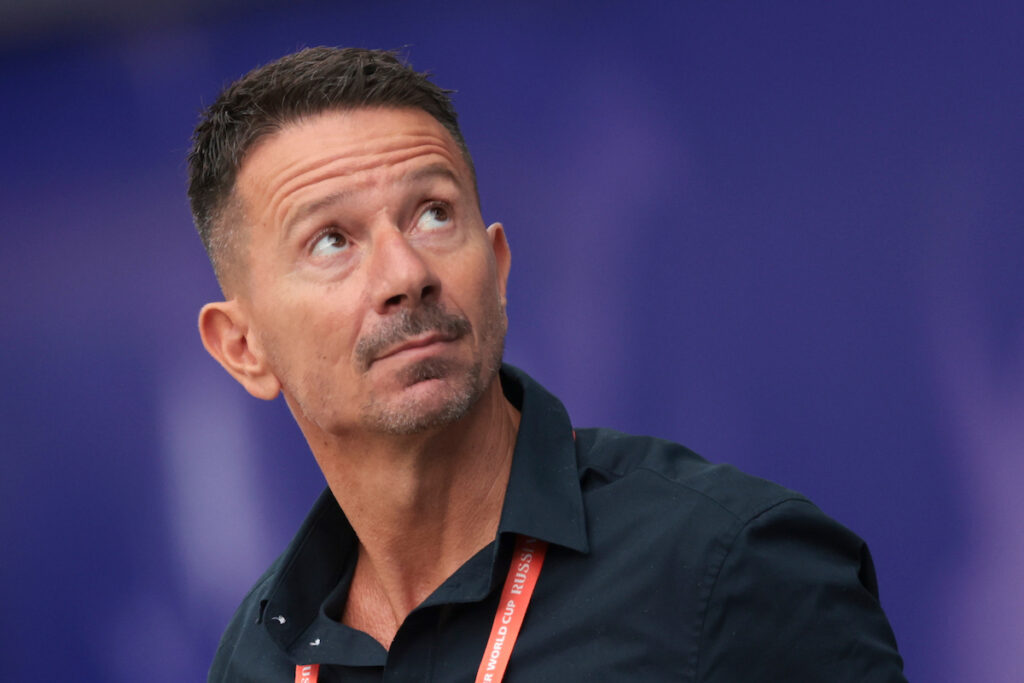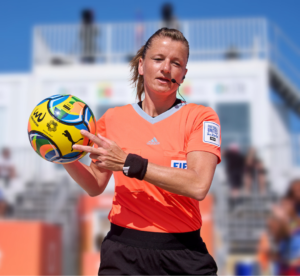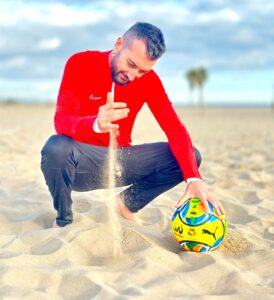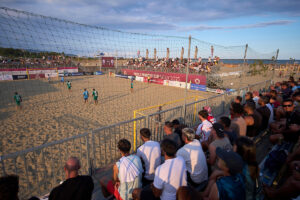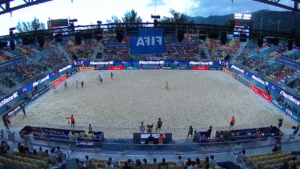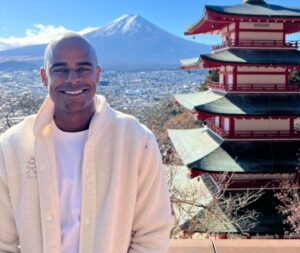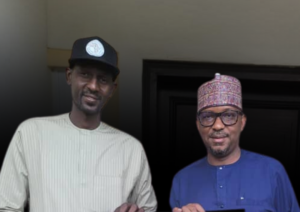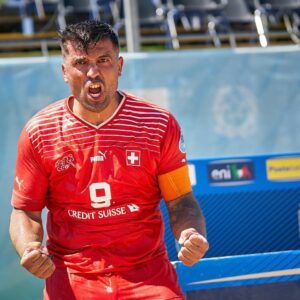After finishing as runners-up on their Beach Soccer World Cup debut back in 2009, Switzerland has failed to go past the quarter-finals until Russia 2021 where they achieved an excellent third-place finish. Head Coach Angelo Schirinzi analyses their performance….
PREPARATION
How was your tournament preparation before the World Cup?
We didn’t have a specific preparation for the World Cup. We held our regular practices in Switzerland, three times per week.
Did you have all the players you wanted available to you?
During the preparation, unfortunately not. Spacca [defender Sandro Spaccarotella] had a broken foot. Noel Ott had just come back from a severe injury and couldn’t practise regularly. Moreover, many players were abroad because initially, we didn’t know that we were going to participate. It was a difficult preparation, therefore. For the tournament, however, all the players were on board.
How has the four-second rule had an impact on the way your team plays?
It has had a big impact on all teams. Many teams couldn’t use their goalie as playmakers simply because they don’t have the time anymore. The goalies can’t be a calming presence anymore. For us, of course, it influenced Eliott [Mounoud] too, but not as much as other teams because he’s better with his feet. Other teams were forced to change their style and now we see more balls being played directly into the offensive zone.
BEACH SOCCER WORLD CUP RUSSIA 2021
What were the difficulties you encountered during the group stage and what were your solutions?
I don’t think we really encountered difficulties. Brazil was, of course, the toughest opponent, and if you lose that one, you need to win the next two games. But after beating them, we knew that we were closer to the quarter-finals.
You played a perfect group stage and finished first in your section. With the knockout matches, from the quarter-finals onwards, did you change the way you played?
We didn’t change anything and proceeded with our attack-oriented style. We won the quarters 10-1 against Uruguay. There was no reason for a change.
Are you satisfied with the third place? What is your overall feeling about your team’s performance in this tournament?
If I’d been offered a third place before the tournament, I’d have signed for that straight away. However, our unfortunate [semi-final] defeat against Russia was tough to swallow. I believe that if we’d won that game, we’d have won gold. We’d have deserved it too, in my opinion. Also, in the opinion of others, we played the best beach soccer of all the teams who took part. Nevertheless, I am satisfied. We had a very good performance and won several individual awards.
The game has changed. There have been more goals resulting from goalies’ quick throws upfield, and more players shooting from everywhere
What could you have done better in the semi-final to beat Russia?
In hindsight, you always know better. Maybe [Dejan] Stankovic should not have returned the ball when a Russian player was on the ground, as we’d have had a two-on-one attack. Following that, the Russians didn’t return the ball and scored shortly thereafter. It was questionable ‘fair play’. Moreover, our two-minute penalty lasted the full length, while our opponents came back after 1:20, which was a big mistake. On the other hand, that’s beach soccer – a lot can happen in two minutes.
Talk us through your win in the third-place match against Senegal.
It was a fantastic match. Senegal is a very strong team. Almost every long-range shot was a goal. However, I think we were dominant, we had a lot of ball possession, and we managed to come back like so often in this tournament. In the end, I think that the win was deserved.
CONCLUSIONS
On an individual level, many of your players were outstanding. You have the top scorer, the second-top scorer, the best player and the best goalkeeper in your squad. Does that make you proud?
Yes, absolutely proud! After all, I’ve been developing these players for years. For instance, Ott and [Glenn] Hodel were already in the national team as 16 or 17-year-olds. It’s great to see what they have accomplished.
When you have possession of the ball you played a 1-2-2 formation, building up from the back, starting with a short pass from your goalkeeper. Has the new four-second rule improved your team’s play?
I wouldn’t say it ‘improved’ our team’s play since now you have less time. Considering Eliott’s class, if we had more time, it’d be even easier for us. He could advance more and shoot when he’s not attacked. With the new rule, our opponents are trying to mark our players on the wing. However, Eliott’s individual class is very important for our game. He has the ability to come out with the ball and play a clean pass within four seconds. For an average player – and not just a goalie – that’s nearly impossible. The bottom line is, can a goalie come out and shoot within four seconds, or can’t he? Only if he can, does it get interesting because in that case he’ll be put under pressure, which creates an outnumbered attack.
During this World Cup, the attacks dominated defences with more than 302 goals scored, 16 more than in 2019. Is this shift mainly due to the application of the new four-second rule?
I think partially. The game has changed. There have been more goals resulting from goalies’ quick throws upfield, and more players shooting from everywhere. Since the goalies are now less dominant, the game has got faster in this first phase. The game now takes place more in the offensive zone. Since the goalies have less time, it can lead to a rush of throw-outs, which in beach soccer can quickly result in a goal.
So in summary, yes, I think the rule is probably a part of it since goalies have to throw the ball more often, which gets the ball quicker to the offensive zone and [means] more focus on offensive-zone play.
The other aspect is that many teams at this tournament played very offensively. Not just us, but also Russia, Senegal, Japan. We saw attractive forward play.
Source: FIFA

